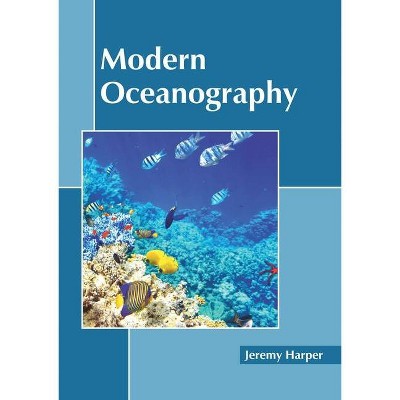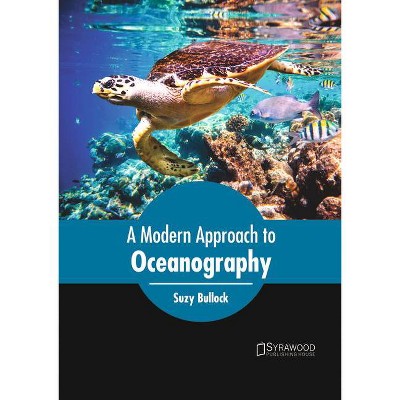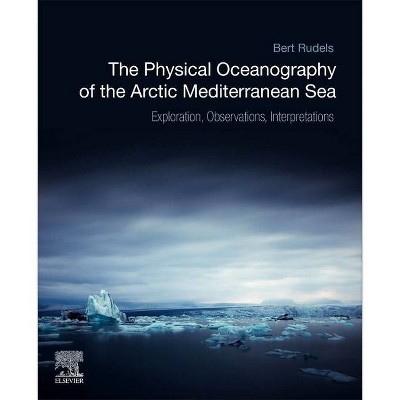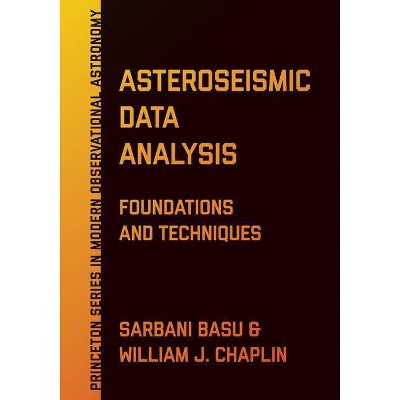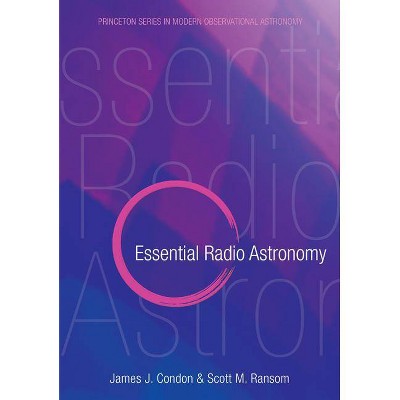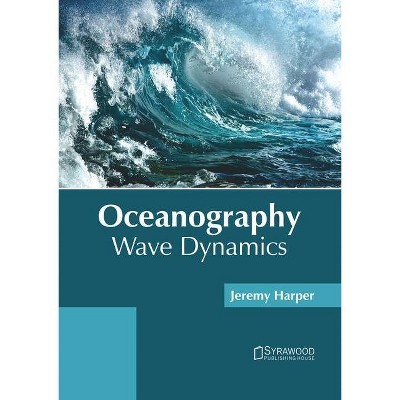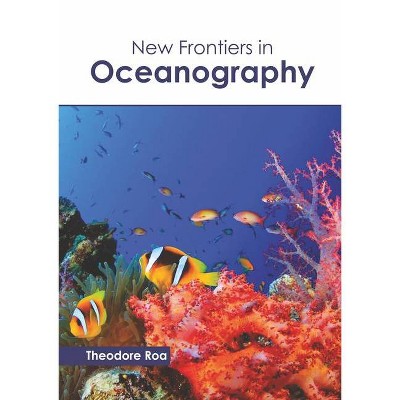Modern Observational Physical Oceanography - by Carl Wunsch (Hardcover)
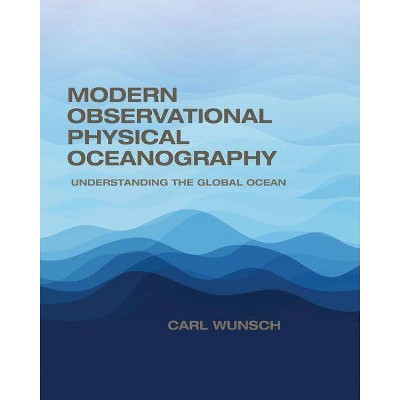
Similar Products
Products of same category from the store
AllProduct info
<p/><br></br><p><b> About the Book </b></p></br></br>"With the advent of computers, novel instruments, satellite technology, and increasingly powerful modeling tools, we know more about the ocean than ever before. Yet we also have a new generation of oceanographers who have become increasingly distanced from the object of their study. Ever-fewer scientists collect the observational data on which they base their research. Instead, many download information without always fully understanding how far removed it is from the original data, with opportunity for great misinterpretation. This textbook introduces modern physical oceanography to beginning graduate students and experienced practitioners in allied fields. Real observations are strongly emphasized, as is their implications for understanding the behavior of the global ocean. Written by a leading physical oceanographer, Physical Oceanography and the Oceanic General Circulation explains what the observational revolution of the past twenty-five years has taught us about the real, changing fluid ocean. Unlike any existing book, it provides a comprehensive and accessible treatment of the subject, covering everything from modern methods of observation and data analysis to the fluid dynamics and modeling of ocean processes and variability. Fully illustrated in color throughout, the book describes the fundamental concepts that are needed before delving into more advanced topics, including internal-inertial waves, tides, balanced motions, and large-scale circulation physics"--<p/><br></br><p><b> Book Synopsis </b></p></br></br><p><b>The essential introduction to modern physical oceanography</b> <p/>With the advent of computers, novel instruments, satellite technology, and increasingly powerful modeling tools, we know more about the ocean than ever before. Yet we also have a new generation of oceanographers who have become increasingly distanced from the object of their study. Ever fewer scientists collect the observational data on which they base their research. Instead, many download information without always fully understanding how far removed it is from the original data, with opportunity for great misinterpretation. This textbook introduces modern physical oceanography to beginning graduate students in marine sciences and experienced practitioners in allied fields. Real observations are strongly emphasized, as are their implications for understanding the behavior of the global ocean. <p/>Written by a leading physical oceanographer, <i>Modern Observational Physical Oceanography</i> explains what the observational revolution of the past twenty-five years has taught us about the real, changing fluid ocean. Unlike any other book, it provides a broad and accessible treatment of the subject, covering everything from modern methods of observation and data analysis to the fluid dynamics and modeling of ocean processes and variability. Fully illustrated in color throughout, the book describes the fundamental concepts that are needed before delving into more advanced topics, including internal-inertial waves, tides, balanced motions, and large-scale circulation physics.<br></p><ul><li>Provides an accessible introduction to modern physical oceanography<br></li><li>Written by a leading physical oceanographer<br></li><li>Emphasizes real observations of the fluid ocean<br></li><li>Features hundreds of color illustrations<br></li><li>An online illustration package is available to professors<br></li></ul><p/><br></br><p><b> From the Back Cover </b></p></br></br><p>"Anyone with a serious interest in understanding the oceans will want to own a copy of Wunsch's book. Its treatment of what is really known about the ocean is the fruit of a lifetime of effort by Wunsch in obtaining, analyzing, interpreting, and critically evaluating oceanic observations. This authoritative and helpfully opinionated book is a must-read for every oceanographer."<b>--Joe Pedlosky, Woods Hole Oceanographic Institution</b></p><p>"In this magnificent book, Wunsch provides a broad introduction to modern observational physical oceanography, encompassing one of the most exciting and important scientific revolutions of the past three decades. It is a tour de force that should be mandatory reading for graduate students and researchers in physical oceanography and related disciplines."<b>--David Marshall, University of Oxford</b></p><p>"Wunsch has led the effort to build a global ocean observing system, which has brought oceanography into a new era. Here, he enables students to appreciate the connections between the basics of this science with the infusion of data from satellites, robotic deep-sea probes, and classic expeditions with ships. We finally can see the inner working of the ocean, at a time when global warming is nudging it in dangerous directions."<b>--Peter Rhines, University of Washington</b></p><p>"Essential reading for all serious students of physical oceanography. Wunsch explains how our knowledge derives from instrumental observations and conceptual models, yet how we often misunderstand the limits of what we see. Knowing these limits illuminates the history of the field and reveals the opportunities that lie ahead. This book's treatment--by one of the most profound thinkers in oceanography--is insightful, wise, erudite, and useful in practice."<b>--Thomas Haine, Johns Hopkins University</b></p><p>"Wunsch is a world-renowned expert in oceanography, especially in observational oceanography, and this book is correspondingly authoritative. It discusses the real ocean, in particular how it is observed and what we can infer about the ocean from these observations. It is unique in its approach and a valuable addition to the canon."<b>--Geoffrey K. Vallis, author of <i>Climate and the Oceans</i></b></p><p/><br></br><p><b> Review Quotes </b></p></br></br><br>[Wunsch's] latest book breaks new ground for an oceanographic text in successfully describing what observations have taught us about the ocean as a time-varying system. . . . A major strength of the book is its clear discussion of what can safely be concluded from observations. . . . In several places in <i>Modern Observational Physical Oceanography</i>, I read with real pleasure about some new insight or neatly described analysis, and I enjoyed diversions such as the discussion of paleotides and the increase by 1.7 microseconds per century in a day's length mostly due to tidal friction. This widely interesting book will be of value to anyone wishing to know more about how to observe the ocean, interpret the data, and gain insights on ocean behavior and on how oceanographers reach their understanding of it.<b>---Stuart A. Cunningham, <i>Physics Today</i></b><br><br>A remarkable book. . . . For anyone who seeks to know, understand, and especially measure the wondrous phenomena of our liquid oceans, I cannot think of a better book than this one. It will inspire new generations of ocean observers, a species that is increasingly in short supply in a world of modelling.<b>---Peter Wadhams, <i>Underwater Technology</i></b><br><br>For physical scientists and engineers interested in oceanography, this book will be a resource for years to come.<b>---S. R. Fegley, <i>Choice</i></b><br><br>Honorable Mention for the 2016 PROSE Award in Textbook/Physical Sciences & Mathematics, Association of American Publishers<br><br>Whether the reader is a graduate student in physical oceanography, or a career scientist working in the field, they will find a wealth of material expertly and accessibly presented. . . . An invaluable companion in teaching and research in ocean dynamics.<b>---Andrew J. Willmott, <i>Geophysical and Astrophysical Fluid Dynamics</i></b><br><p/><br></br><p><b> About the Author </b></p></br></br>Carl Wunsch is the Cecil and Ida Green Professor of Physical Oceanography, Emeritus, at the Massachusetts Institute of Technology and a long-term visiting professor at Harvard University. His books include "Discrete Inverse and State Estimation Problems: With Geophysical Fluid Applications" and "The Ocean Circulation Inverse Problem." He is a member of the National Academy of Sciences and a foreign member of the Royal Society.
Price History
Price Archive shows prices from various stores, lets you see history and find the cheapest. There is no actual sale on the website. For all support, inquiry and suggestion messages communication@pricearchive.us
